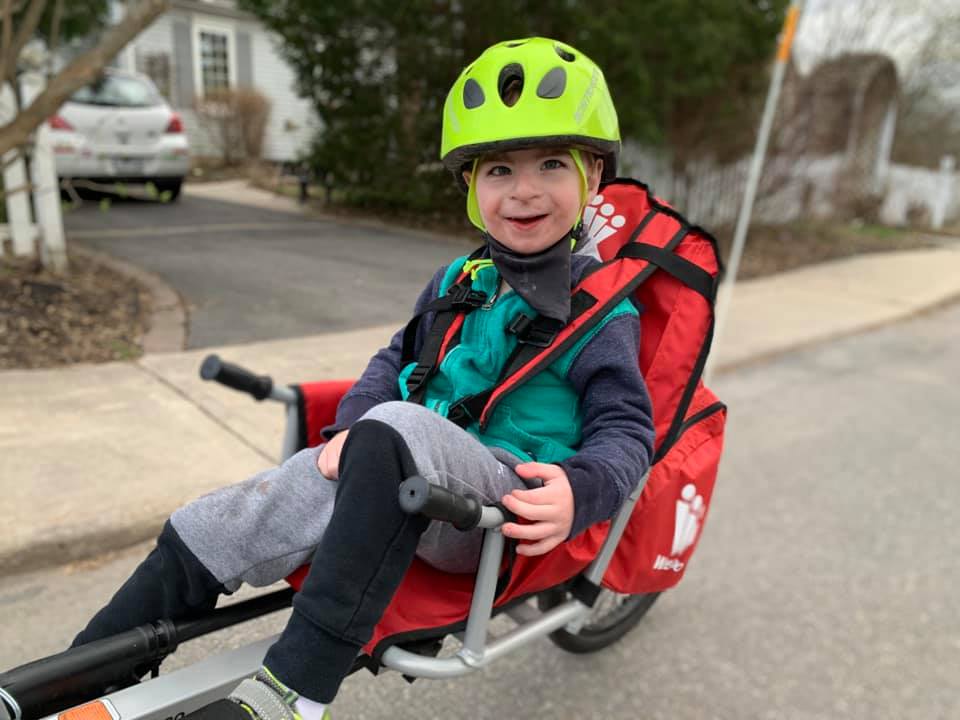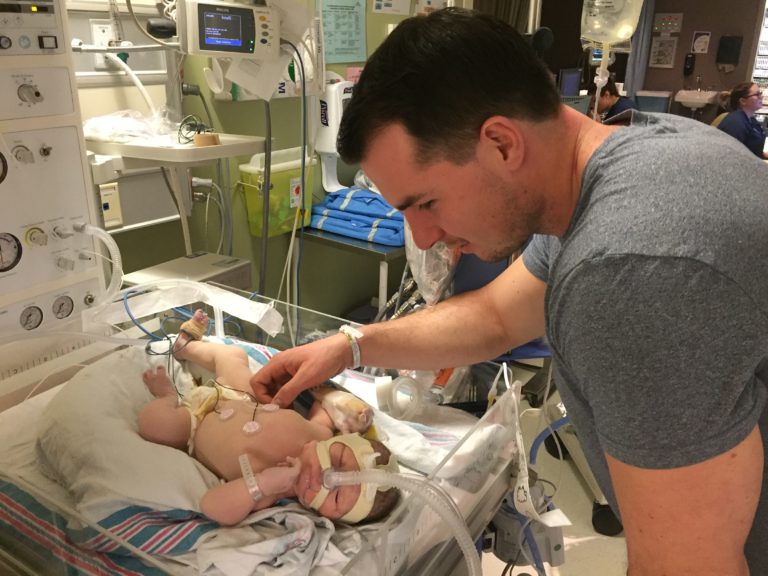
In April 2016, Tyler and Jessica found out they were expecting. Throughout the pregnancy, everything went smoothly. On January 4, 2017, Jessica went to the hospital due to high blood pressure. She was induced that evening. The next day Jessica started her labor at 4 PM and by 7:34 PM Clarke was born.
Unfortunately, things didn’t go as smoothly as we hoped. After birth, Clarke was rushed to the NICU and had to stay there for several days due to some complications. The doctors mentioned that there was likely a genetic causal factor to his medical complications.
For the first year of his life, Clarke had to see a geneticist, cardiologist, ear nose and throat specialist, neurologist, neurosurgeon, ophthalmologist and dermatologist. Clarke had x-rays, two MRI’s, ultrasounds every three months and annual blood work. At this point, we still were unaware of his disability.

In December 2018, just before Clarke’s second birthday, we found that Clarke has Rubinstein-Taybi Syndrome (RTS). This is a genetic mutation which impacts all areas of his development. For more information about RTS, please click here.
Luckily, we found an amazing pediatric specialist who fought to ensure that Clarke had the early intervention he required. Clarke started physiotherapy before his first birthday. He also starting seeing a speech therapist and an occupational therapist when he was two. When Clarke was three, he also received the diagnosis of having Autism Spectrum Disorder (ASD).
During the pandemic, just like many children, Clarke struggled with the change in routine and lack of social interaction with others. Still being non-verbal, we knew that something needed to change. Since Clarke was a baby, we have been learning and teaching him American Sign Language (ASL). This has been extremely helpful in ensuring that Clarke has his basic needs met. He picked up some signs immediately (thirsty, more, again, milk, all done, eat ). However, due to his poor dexterity, and others having limited knowledge in ASL, Clarke was still left feeling frustrated with others lack of understanding of his wants and needs. This is when we decided to start using an Augmentative Communication Device. Clarke now has an iPad with an app called Proloquo that he uses to communicate.